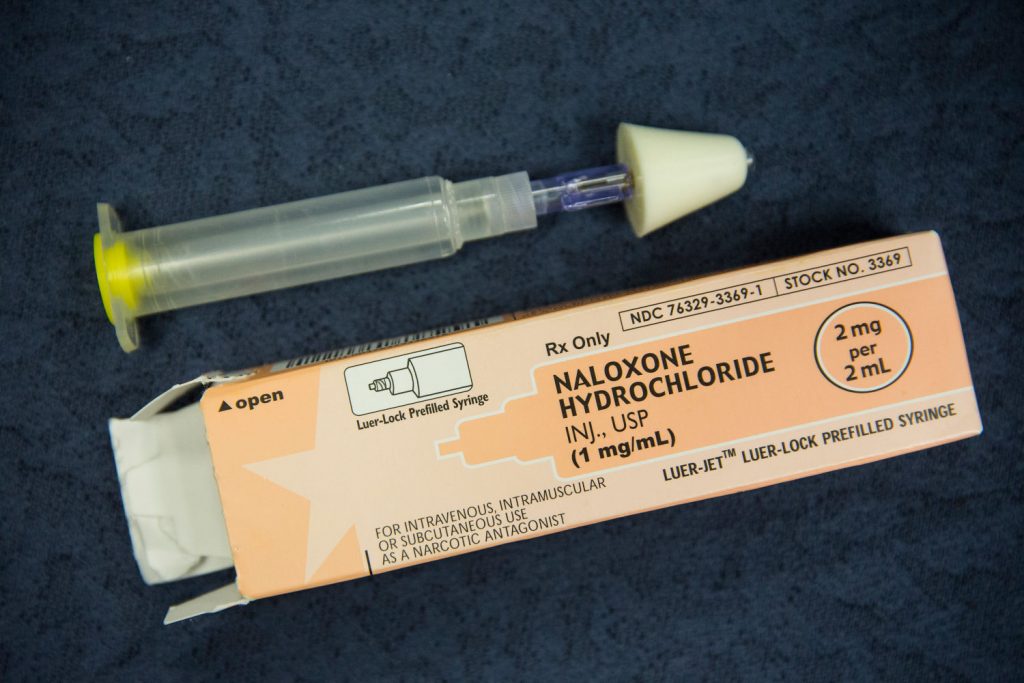The Wolf Administration’s Opioid Command Center announced the availability of the Statewide Naloxone Allocation Request Portal. The portal allows eligible organizations serving high-risk populations the ability to request additional naloxone nasal spray.
“We are committed to ensuring that naloxone is widely available to help those with the disease of addiction,” Acting Secretary of Health Alison Beam said. “Naloxone has one role, and that is to save someone who is suffering from an overdose. It is essential that every Pennsylvanian consider obtaining naloxone to help save a life.”
This portal will supplement the Central Coordinating Entities’ (CCEs) efforts through the Naloxone for First Responders Program (NFRP) with a dedicated supply of naloxone focused on supporting distribution efforts to reach high-risk and high-need populations.
Eligible organizations must utilize naloxone provided through this portal to support one or more of the following priority populations:
- Individuals using Syringe Service Programs (SSPs) and harm reduction services;
- Individuals leaving state prisons and county jails;
- Individuals engaged in and/or leaving treatment or detox and those who are in recovery;
- Individuals who have experienced a nonfatal overdose; and/or
- Other high-risk populations identified by the organization (i.e., pregnant/post-partum women with a history of opioid use disorder, individuals experiencing homelessness, etc.).
“Naloxone has been a key component of battling the opioid epidemic in Pennsylvania,” said Department of Drug and Alcohol Programs Secretary Jen Smith. “The Wolf Administration has worked hard to ensure that all Pennsylvanians have access to naloxone. This portal will help ensure that we are able to fulfill the needs of the commonwealth’s more high-risk overdose populations, and ultimately save lives.”
Launched in 2017, the goal of the NFRP is to increase the availability of lifesaving medication for individuals at greatest risk of opioid overdose as well as the systems most likely to interact with these individuals. NFRP provides no-cost intranasal naloxone to priority first responder groups through a network of 48 CCEs. Since inception, CCEs have distributed more than 80,000 kits of NARCAN to first responder groups, resulting in more than 17,094 reported overdose reversals to date.
“PCCD remains committed to the distribution of naloxone throughout the state to prevent overdose deaths and save lives,” Pennsylvania Commission on Crime and Delinquency Executive Director Michael Pennington said. “Our agency will continue to work with our partners at the state and local levels to increase availability of this life-saving medication for individuals and communities with the greatest need.”
Additional naloxone efforts include the Pennsylvania Department of Health’s standing orders to make naloxone more accessible for the public, first responders, and last year, a standing order for community organizations to distribute naloxone through mail order. Additionally, the Wolf Administration has sponsored two public giveaway events as part of Stop Overdose in Pennsylvania: Get Help Now week, where nearly 10,000 kits of naloxone were distributed.
The Opioid Command Center, established in January 2018 when Gov. Wolf signed the first opioid disaster declaration, meets every week to discuss the opioid crisis. The command center is staffed by personnel from 17 state agencies and the Office of the Attorney General, spearheaded by the departments of Health and Drug and Alcohol Programs. Last year, the command center released a strategic plan highlighting accomplishments to date and providing a roadmap for the continued work to help those with substance use disorder.
Efforts over the past several years, working with state agencies, local, regional, and federal officials, have resulted in significant action to address the opioid crisis.
- Physician General signed an updated naloxone standing order permitting community-based organizations to provide naloxone by mail.
- In September, DDAP announced the launch of Life Unites Us, an anti-stigma campaign, utilizing social media platforms to spread real-life stories of individuals and their family members battling substance use disorder, live and recorded webinars detailing tools and information necessary to effectively reduce stigma to more than 350 community-based organizations focused on SUD prevention, treatment, and recovery throughout Pennsylvania, and a web-based interactive data dashboard detailing the progress of the campaign.
- The Wolf Administration called on all Pennsylvanians to carry naloxone.
- The Prescription Drug Monitoring Program has reduced opioid prescriptions by 36.6 percent and has virtually eliminated doctor shopping.
- The number of people receiving high dosages of opioids (defined as greater than 90 morphine milligram equivalents per day) has dropped 58.6 percent since the PDMP launched in August 2016.
- The Opioid Data Dashboard and Data Dashboard 2.0 has provided public-facing data regarding prevention, rescue and treatment.
- Pennsylvania Coordinated Medication Assisted Treatment (PacMAT) programs are serving as part of a hub-and-spoke model to provide evidence-based treatment to people where they live. 8 PacMAT programs have served patients through this initiative.
- More than 45 Centers of Excellence, administered by the Department of Human Services, provide coordinated, evidence-based treatment to people with an opioid use disorder covered by Medicaid. The COEs have treated more than 32,500 people since first launching in 2016.
- The waiver of birth certificate fees for those with opioid use disorder has helped more than 6,090 people, enabling easier entry into recovery programs.
- A standing order signed by former Secretary of Health Dr. Rachel Levine in 2018 allowed EMS to leave behind more than 2,400 doses of naloxone.
- Education has been provided to more than 9,500 prescribers through either online or face-to-face education.
- More than 880 drug take-back boxes help Pennsylvanians properly dispose of unwanted drugs, including 178,540 pounds of unwanted drugs in 2019. 2020 data is not yet available because of COVID.
- The Get Help Now Hotline received more than 49,000 calls, with more than half of all callers connected directly to a treatment provider.
- The state prison system has expanded their Medication Assisted Treatment (MAT) program, which is viewed as a model program for other states.
- A body scanner pilot project was successful in reducing overdoses and violent crime in a number of facilities. Body scanners are in place in more than 30 locations and are currently being expanded to additional facilities.
- Several agencies have worked together to collaborate on the seizure and destruction of illicit opioids across Pennsylvania.
- Education and training on opioids have been provided to schools. Future plans are in place to make opioid education a standard component of school-based training.
- The coordination with seven major commercial providers has expand access to naloxone and mental health care, while also working to make it more affordable.
- Naloxone has been made available to first responders through the Pennsylvania Commission on Crime and Delinquency since November 2017, with more than 80,000 kits made available and more than 17,094 overdose reversals reported through the program. More than 6,600 of those saves occurred in 2019.
- EMS have administered more than 51,760 doses of naloxone and more than 10,000 doses were made available to members of the public during the state’s naloxone distribution in 2019.
More information on the opioid crisis can be found on the Department of Health’s website at health.pa.gov or follow us on Facebook and Twitter.



